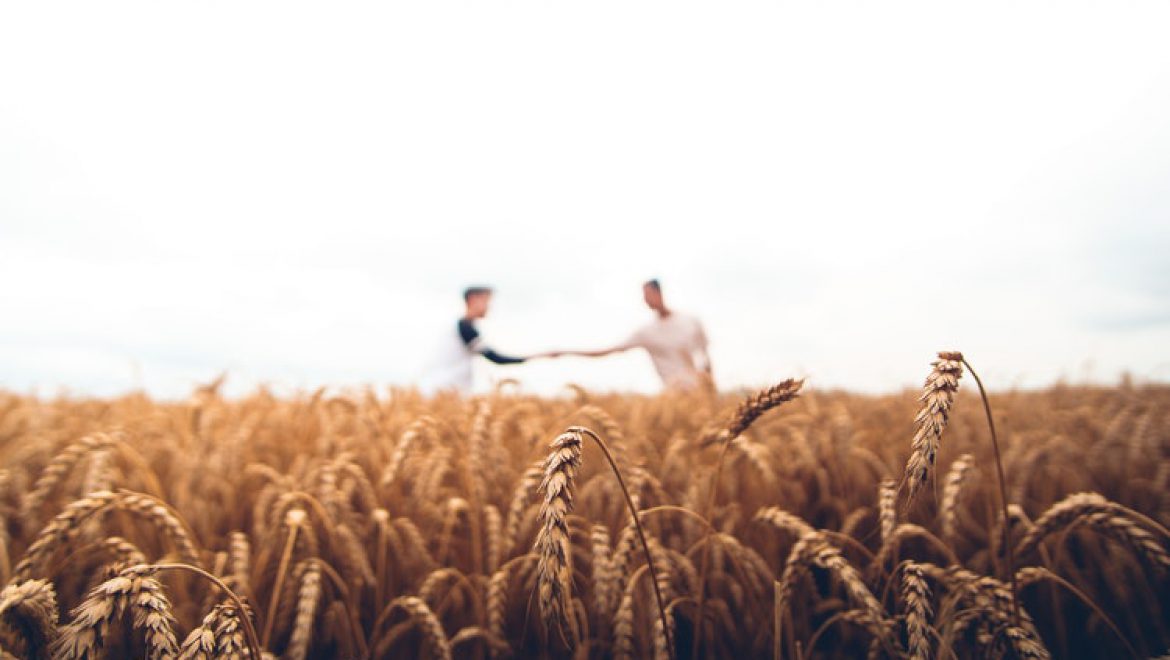
This descriptive poem in Hebrew and English by Kaila Shabat paints a lovely picture of the festive Shavuot celebrations in the moshavim and kibbutzim of Israel. Often secular and deeply connected to the Land of Israel, these communities often focus on agricultural roots of the Festival of the First Fruits, as opposed to the religious significance of the receiving of the Torah. Kaila Shabat, a poet, author and singer who arrived in Israel from London as a volunteer after the Six-Day War, shared her poem on Ritualwell, a project of the Reconstructionist Rabbinical College that provides a platform for creating new Jewish practices and observances.
Festival of the First Fruits
they converge on the square.
Pastel pennants and blue stars
flutter above bales of hay
that spell out the word Shalom.
Shouldering laden baskets,
nymphs perform a demure dance,
to blaring seasonal folk songs,
fluffy chicks scrabbling at their feet.
Calves ride past on trailers and
mothers proudly parade new babies.
Blue and white balloons,
released into the cloudless sky,
drift away to Jordan.
The villagers praise the Provider,
not in the temple but on the land
from whence springs the Bounty,
reveling in its wonders
and in the sheer joy of living.
חַג הַבִּכּוּרִים
בִּלְבוּשׁ חֲגִיגִי, רֻבָּם בְּלָבָן,
הֵם מִתְכַּנְּסִים בַּכִּכָּר
דְּגָלִים צִבְעוֹנִים וְכוֹכָבִים כְּחֻלִּים
מִתְנוֹפְפִים מֵעַל חֲבִילוֹת חָצִיר
הַמְּאַיְּתוֹת אֶת הַמִּלָּה שָׁלוֹם.
לִצְלִילֵי שִׁירֵי עַם עוֹנָתִיִּים,
רוֹקְדוֹת נַעֲרוֹת רִקּוּד עָדִין,
סַלִּים מְלֵאִים עַל כִּתְפֵיהֶן,
אֶפְרוֹחִים לְרַגְלֵיהֶן.
בַּגַּאֲוָה אִמָּהוֹת נוֹשְׂאוֹת תִּינוֹקֵיהֶן.
רַפְתָּנִים מַצִּיגִים עֲגָלִים לְרַאֲוָה.
בָּלוֹנִים כְּחֻלִּים וּלְבָנִים
מְשֻׁחְרָרִים לַשָּׁמַיִם הַבְּהִירִים,
נִסְחָפִים בָּרוּחַ מִזְרָחָה.
אַנְשֵׁי הַכְּפָר מְהַלְּלִים אֶת הַנּוֹתֵן,
לֹא בְּבֵית הַכְּנֶסֶת אֶלָּא עַל הָאֲדָמָה
אֲשֶׁר מִמֶּנָּה נוֹבֵעַ הַשֶּׁפַע,
מִתְעַנְּגִים עַל פְּלָאֶיהָ וּתְנוּבָתָהּ
וְעַל עֶצֶם שִׂמְחַת הַחַיִּים.

